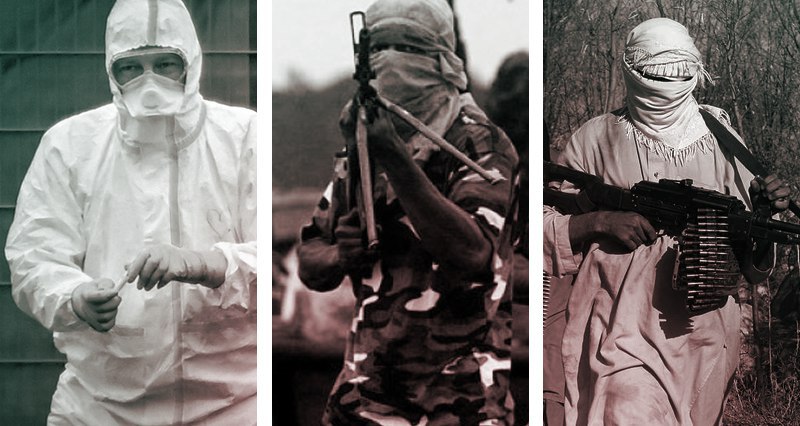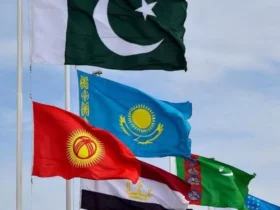Coronavirus around the world
According to the WHO, the number of people infected with coronavirus worldwide now exceeds 1,136,000. The leader this week was the United States, with somewhere between 270,000 and 337,000 people infected with Covid-19. As we wrote earlier, this is mainly a result of the uncertain policies of US President Donald Trump, alternating between taking the virus seriously and then treating it as a joke. The president is at war with various governors of “hot spot” states while at other times he seems to have laid all the responsibility on them.
https://uwidata.com/9502-american-pandemic-the-true-face-of-totalitarianism/
The main problem of the United States is capitalism which puts profit above people’s lives – economic concerns are the foremost concern of the so-called “democractic” country.
https://uwidata.com/9548-covid-19-and-the-end-of-the-washington-consensus/
Moreover, unable to cope with the pandemic on its own, America has engaged in outright piracy, stealing medical supplies that were sent to other countries.
Masks delivered by China were taken from France. And earlier the German authorities openly called the actions of Americans “an act of modern piracy,” adding that “this is no way to treat trans-Atlantic partners.”
The situation in Europe is still critical, but the tides are slowly beginning to turn. The European hot spots are Spain and Italy (in both more than 124 000 confirmed cases), followed by Germany and France.
France and Italy recorded the lowest number of coronavirus deaths in one and two weeks respectively.
African terrorism
While the world’s attention has almost entirely shifted to the coronavirus pandemic, the fight against jihadist terrorism in Africa (especially the Sahel region) has taken a dangerous turn. While ISIS and Al-Qaeda view the coronavirus as a threat, they also see the shock of the pandemic as an opportunity to win more supporters and strike harder. They claim that the virus is a punishment for non-Muslims. Al-Qaeda suggested that non-Muslims should use their time in quarantine to learn about Islam.
This week, it was reported that the Somali terrorist group Al-Shabaab held a five-day consultative forum on jihad in East Africa with hundreds of participants. Participants included intellectuals, theologians and traditional leaders. In a communiqué, the group recognized an urgent threat to peace, including to Muslims.
The same week, the struggle continued in Chad. The Chadian authorities destroyed five bases of the terrorist group Boko Haram following the 23 March attack on the military base, which killed 98 Chadian soldiers. At that time, they ambushed a military camp of Chadian soldiers on the Boma peninsula – the largest attack on Government forces in Africa in recent years.
Several terrorist bases have also been destroyed in Niger and Nigeria.
Such massacres could go far beyond the region in the near future. For example, it has become known that the Al-Qaeda affiliate in Somalia is threatening Americans in East Africa. And not only them: the threats have already been directed at the US.
Several ominous signs indicate that al-Qaeda’s affiliate, Shabaab, is seeking to spread its deadly chaos far beyond its base and to attack Americans (and not only) where possible.
In addition, in late March, about two hundred militants captured the city of Mocímboa da Praia in Mozambique, with military and police stations as their primary target.
While the world is distracted by the Covid-19, terrorists are preparing for revenge.
The Taliban have become more active
The Afghan Taliban also decided to take advantage of a convenient coronavirus moment,
He places video footage of the disinfection and photos of his militants handing out face masks and soap, promising security guarantees to any help group that helps victims of the virus or helps to stop its spread.
But at the same time, they make claims, warning that they will resume full-scale attacks if the peace agreement signed with the US in February is not respected.
In a statement, Taliban spokesman Zabihullah Mujahid accused the Afghan government of delaying the release of 5,000 Taliban prisoners which had been promised under the agreement.
If such violations continue, it will create a climate of distrust that will not only damage the agreement, but also force the mujahedin to react in a similar way and increase the level of fighting, the Taliban added.

















Leave a Reply